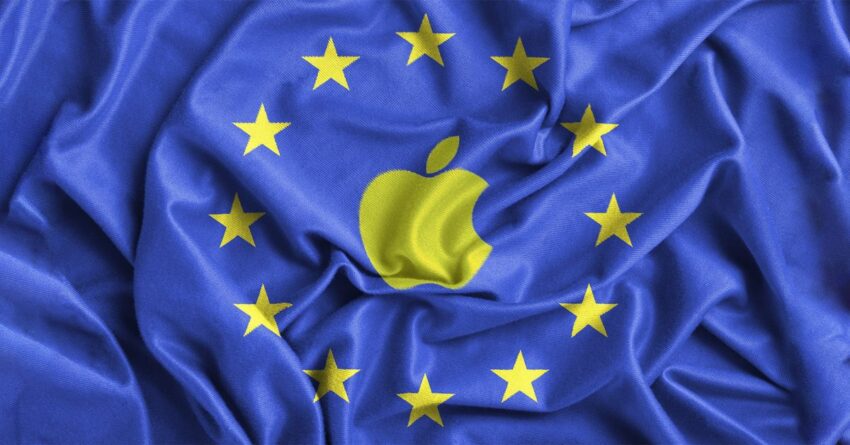
eu commission responds to apple s call Apple has intensified its opposition to the European Union’s Digital Markets Act (DMA), prompting a strong response from the European Commission.
eu commission responds to apple s call
Background on the Digital Markets Act
The Digital Markets Act, which came into effect in May 2023, aims to create a more competitive digital landscape in Europe by regulating the practices of major tech companies, often referred to as “gatekeepers.” These companies are defined by their significant impact on the internal market, their control over access to digital services, and their entrenched position in the market. The DMA includes provisions that require these companies to open their platforms to third-party developers, ensuring fair competition and consumer choice.
The Act is part of a broader regulatory framework designed to address the growing concerns about monopolistic practices and the lack of competition in the tech industry. The European Commission has been vocal about its commitment to enforcing these regulations, which could reshape the way major tech companies operate in Europe.
Apple’s Position on the DMA
In a recent statement, Apple expressed its strong opposition to the DMA, arguing that the regulations would undermine the security and privacy of its users. The company has long maintained that its closed ecosystem is essential for maintaining the integrity of its products and services. Apple claims that opening its platform to third-party developers could expose users to security vulnerabilities and compromise user data.
Apple’s rebuttal comes as the company faces increasing scrutiny over its App Store policies and practices. Critics argue that Apple’s control over its ecosystem stifles competition and innovation, leading to higher prices and fewer choices for consumers. The DMA aims to address these concerns by mandating that companies like Apple allow alternative app stores and payment systems on their platforms.
Key Arguments from Apple
- User Security: Apple argues that its tightly controlled ecosystem is crucial for ensuring user security and privacy. The company contends that allowing third-party apps and payment systems could lead to increased risks of malware and data breaches.
- Innovation Stifling: Apple claims that the DMA could stifle innovation by forcing it to compromise on its design and functionality standards. The company believes that its approach to app development and distribution has fostered a vibrant ecosystem of high-quality apps.
- Consumer Choice: While Apple acknowledges the importance of consumer choice, it argues that the DMA’s requirements could lead to confusion among users and dilute the overall user experience.
The European Commission’s Response
In response to Apple’s statements, the European Commission reiterated its commitment to enforcing the DMA and emphasized the importance of fostering competition in the digital market. The Commission stated that the DMA is designed to benefit consumers by ensuring that they have access to a wider range of services and products.
The Commission’s spokesperson highlighted that the DMA is not intended to undermine security but rather to promote a fairer digital environment. The spokesperson noted that the regulations are aimed at preventing anti-competitive practices that can harm consumers and stifle innovation in the long run.
Key Points from the Commission
- Consumer Protection: The Commission emphasized that the DMA is fundamentally about protecting consumers and promoting competition. By allowing alternative app stores and payment systems, consumers will have more choices and potentially lower prices.
- Level Playing Field: The Commission aims to create a level playing field for all developers, ensuring that smaller companies can compete effectively against larger players like Apple.
- Security Measures: The Commission acknowledged Apple’s concerns about security but pointed out that the DMA includes provisions to ensure that security standards are maintained across all platforms.
Implications of the DMA for Apple
The implications of the DMA for Apple are significant. If enforced as currently written, the regulations could force Apple to make substantial changes to its App Store policies and practices. This could include allowing alternative app stores, enabling sideloading of apps, and permitting third-party payment systems.
Such changes could have far-reaching consequences for Apple’s business model, which has heavily relied on the revenue generated from its App Store. The company takes a commission on app sales and in-app purchases, which has been a significant source of income. Allowing alternative payment systems could erode this revenue stream and lead to increased competition for app developers.
Potential Reactions from Stakeholders
The reaction to the DMA and Apple’s opposition has been mixed among stakeholders. While some consumer advocacy groups support the DMA as a necessary step toward greater competition, others express concerns about the potential impact on user experience and security.
- Consumer Advocacy Groups: Many consumer advocates argue that the DMA is essential for promoting fair competition and protecting consumers from monopolistic practices. They believe that the regulations will lead to lower prices and more choices for consumers.
- App Developers: Smaller app developers may welcome the DMA, as it could provide them with greater access to the market and reduce the dominance of larger players like Apple. However, larger developers may have concerns about the potential fragmentation of the app ecosystem.
- Investors: Investors may be wary of the potential impact of the DMA on Apple’s revenue and profitability. If the company is forced to change its App Store policies, it could affect its bottom line and overall market position.
Future Outlook
The future of the DMA and its impact on Apple remains uncertain. As the European Commission moves forward with the implementation of the regulations, it is likely that Apple will continue to voice its opposition and seek modifications to the law. The company may also explore legal avenues to challenge the DMA if it believes that the regulations infringe on its business practices.
In the coming months, the European Commission will likely conduct further consultations with stakeholders, including tech companies, consumer advocates, and regulatory bodies. This process could lead to adjustments in the DMA as the Commission seeks to balance the need for competition with the concerns raised by companies like Apple.
Broader Implications for the Tech Industry
The outcome of the DMA and Apple’s response could set a precedent for how other countries approach regulation of the tech industry. As governments worldwide grapple with similar concerns about monopolistic practices and consumer protection, the EU’s approach may serve as a model or a cautionary tale for other jurisdictions.
In particular, the DMA could influence discussions in the United States, where lawmakers are also considering measures to regulate big tech companies. The ongoing debate about the balance between innovation, competition, and consumer protection will likely continue to evolve as more jurisdictions look to implement similar regulations.
Conclusion
Apple’s strong rebuttal to the Digital Markets Act highlights the ongoing tension between major tech companies and regulatory bodies. As the European Commission stands firm in its commitment to enforcing the DMA, the implications for Apple and the broader tech industry remain significant. The coming months will be critical in determining how these regulations will shape the future of digital markets in Europe and beyond.
Source: Original report
Was this helpful?
Last Modified: September 26, 2025 at 1:37 am
5 views















